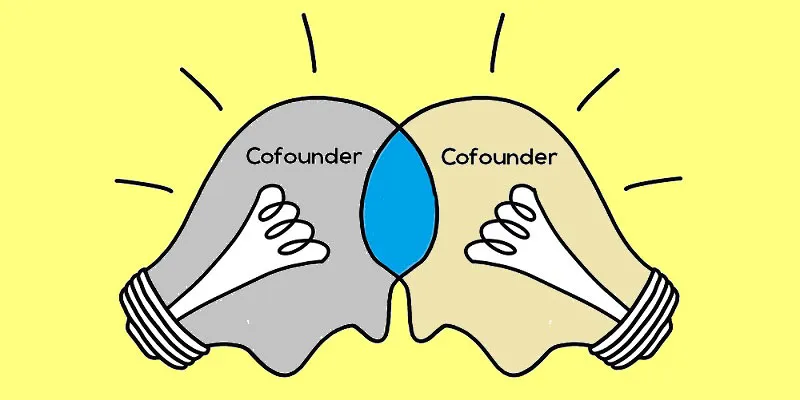[Matrix Moments] Companionship among startup co-founders is like a marriage, says Avnish Bajaj of Matrix Partners India
In this #MatrixMoments podcast, Avnish Bajaj, Founder and Managing Director of Matrix Partners India, highlighted what it takes to build a strong founding team of a startup.
A founding team either makes or breaks a company. They form the base of everything that helps the company scale and grow. In this episode of #MatrixMoments, Avnish Bajaj, Founder and Managing Director, Matrix Partners India, explores the different ways to build a strong founding team for early-stage startups.
“Having been a founder, I recognise that building a company is a very difficult undertaking. Ask any entrepreneur and they will tell you, it tends to be very lonely at the top. So the companionship of the people who are with the founder or the founding team is very important. It is just like a marriage,” says Avnish.
While different analysis and data points show that a founding team of three is perfect, Avnish emphasises that it differs on a case by case basis. Explaining why three can be a good mix of people at the top management, Avnish says,
“There is an analogy of three people forming the three ends of a pyramid - visionary, hustlers, and hackers. The visionary sets the big picture, the hustler gets things done, and the hacker builds the systems. While this is an ideal world scenario, what helps is having people with complementary skill sets.”

Image credit: Shutterstock
The first among the equals
He adds that it is important to think of complementaries and not similarities, because in most cases, people choose those who are similar.
Citing his example Avnish says, “In my first venture (Bazee) with Suvir (Sujan), we were more similar than dissimilar. It worked out great, but it was after the fact that we discovered we had complementarities in our skill sets. Suvir was more creative and managed business development more. I did a little bit more on the operations, product, tech, finance side, so on and so forth.”
Today, Avnish says, if he were to start a company all over again, he would start with a tech co-founder.
He says, “I would never have equal co-founders. I think it is very important to have a first among equals. I have seen teams that have been the most well-gelled – and it’s not about ownership. Ownership can be equal, but there has to be a person who is first among them.”
As an investor, Avnish asks, “Who is going to be that one person whose decision will matter, and who will take the final call?”
Businesses go through several ups and downs in their journey, and if there is a different point of view between co-founders while the focus is on equal decision-making, the organisation can get frozen, he says.
Frameworks to workaround
Matrix Partners India uses an internal framework called FPBM - Founder, Product, Business, and Market, where it looks at the founder, product, business, and market fit of the startup.
“In our business, we say product-market fit a lot. People often don’t think of founder fit with those businesses. There are thin stack businesses, as well as full-stack businesses. If it is a pure tech business, it is a thin-stack business, and if it is a high-execution heavy business, it is full-stack. So, if I am starting a highly tech-focused company, I need rocket science, computer science, IIT type, etc., co-founder. If I am starting a financial services business, I need a risk trained level of co-founder,” says Avnish.
While there are no right and wrong answers, Avnish says these are just frameworks to think through and apply to get the right answer.
He adds that it is important to have a basic idea of the business one wants to pursue because they want to match the profile of the co-founder. But then there are other approaches to find the right co-founder as well.
Avnish says there are three approaches to this: a top-down approach - where you network and meet people in the industry, a bottom-up approach - where you look for people you know around you, and finally, serendipity - where you just run into people.
Work through intense courtship
“The less you know a person, the more scientifically you should follow this process which is to just try to compress the future into the present. And, if you are going to be spending the next 10 years of your life with this person, you should try to compress that next 10 years into a very intense ‘courtship period’ or getting to know each other, which can go over months,” says Avnish.
But if finding the correct set of co-founders is like courtship, people end up putting their best foot forward. Avnish urges entrepreneurs to spend time in different settings, situations, and go through different scenarios.
Summing it up, Avnish says,
“Spend time getting to know each other’s families, spouses, and children. There is a lot you can know about a person by knowing how they interact with different parts of their ecosystem. Go through extreme referencing. It ultimately boils down to chemistry. Do you feel the chemistry? Can you imagine the worst moments of your life and apart from your family, your wife, and would you want this person around you? Recognising that it’s lonely at the top, is this the person you want to be lonely with? And I know it sounds a little bit corny, but that’s what it is. That’s what a co-founder relationship is in early-stage startups.”
Listen to the podcast here.
(Edited by Suman Singh)


![[Matrix Moments] Companionship among startup co-founders is like a marriage, says Avnish Bajaj of Matrix Partners India](https://images.yourstory.com/cs/2/a9efa9c02dd911e9adc52d913c55075e/cofounder-1583508699200.png?mode=crop&crop=faces&ar=2%3A1&format=auto&w=1920&q=75)
![[Matrix Moments]: Founders need to find people who can go with the flow, says Vikram Vaidyanathan of Matrix Partners](https://images.yourstory.com/cs/wordpress/2017/04/21-hiring-the-best.png?fm=png&auto=format&h=100&w=100&crop=entropy&fit=crop)
![[Matrix Moments] Should startup founders opt for VC funding in seed rounds or a good angel investor?](https://images.yourstory.com/cs/1/a9efa9c02dd911e9adc52d913c55075e/Angel-funding-seed-funding-1581092509059.png?fm=png&auto=format&h=100&w=100&crop=entropy&fit=crop)




